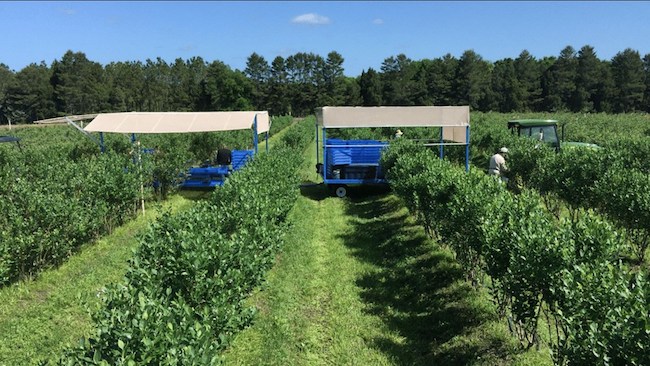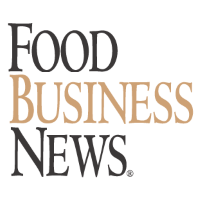
Mandatory ESG Reporting Standards Will Be the Most Important Development Ever for Organic
(Image courtesy of the Real Organic Project)
How Organic Insider operates: We accept no advertising, we have no paywalls and we make our newsletters free to everyone — because vital information about our industry needs to get out to as many people as possible. Please consider supporting our work, whether you are an individual or a company. Thank you so much.
Regenerative operations. Sustainable packaging. Worker welfare. Carbon neutral.
These are all critical components for any company’s business practices.
Very soon, there will be a global scorecard that will make it easy for anyone to understand who is doing well, who is doing poorly and who could use some improvement.
Most importantly, it will have a dramatic and very positive impact on publicly-traded organic companies, private organic companies and the industry overall. The transparency will make it impossible for any company to hide.
While several sustainability standards do exist, the reality is that not all corporations are using them. Furthermore, there is no one single standard that has achieved an official “buy-in” from the vast majority of the international community.
That will soon be changing with the introduction of the International Sustainability Standards Board (ISSB), whose mission will be to create Environmental, Social and Governance (ESG) reporting standards on a global scale.
What makes the ISSB so unique and gives it such gravitas is that the organization behind it is the International Financial Reporting Standards Foundation (IFRS). In the early 1970s, the IFRS created the International Accounting Standards Board, whose standards are currently being used by over 140 countries worldwide, including 15 of the G20 countries. Now, IFRS is doing the same but with sustainability in mind.
During COP26 in Glasgow last November, IFRS announced the formation of the International Sustainability Standards Board and named Emmanuel Faber, a very well-known figure in the organic community, as the ISSB chair.
Having formerly served as the chairman and CEO of Danone — before the company decided to cut the contracts of 89 small organic dairy farmers in the Northeast — Faber has long championed the importance of sustainability information to the global capital markets and its relevance to the investment decision-making process.
“Investors are demanding high-quality, globally comparable sustainability information on which to make informed investment decisions. The ISSB represents a once-in-a-generation opportunity to fulfill that need in a fast-changing world, where climate, in particular, will drive major shifts in the coming years,” said Emmanuel Faber.
The ISSB is in the process of developing its standards, with something expected to be released later in 2022. Rather than starting from scratch and creating new standards, ISSB will incorporate existing standards already in place, such as the Climate Disclosure Standards Board and the Value Reporting Foundation, and it will also create new ones for areas that need them.
POWERFUL FORCES PUSHING FOR ESG DISCLOSURE
The impact that ISSB will have, in every sector of the economy, cannot be overstated.
“This is a complete and total game-changer because the writing on the wall suggests that at some point, ESG measuring and reporting is going to be a requirement for publicly-traded companies and those looking for financing. Exhibit A is what just happened in California,” said Elizabeth Candelario, Director of Strategic Partnerships at Mad Agriculture.
In January, the California senate passed the Climate Corporate Accountability Act. This law requires companies doing business in California and generating over $1 billion in gross annual revenue to annually disclose their carbon emissions.
“Walmart, Amazon, Target, Costco and every other billion-dollar business operating in California will have to disclose their direct and indirect emissions, which include their supply chain,” said Elisa Turner, founder of Impakt IQ and an expert in ESG.
“ISSB will mandate the disclosure not only of emissions, water and waste but chemical use and GMOs, forcing companies to shift to a more responsible way of doing business. This development is so game-changing that it could be compared to the emergence of the internet. Companies will have no choice but to participate, and it will affect everything that they do,” she continued.
The real push behind all of this, however, is the financial community.
Goldman Sachs said that “integrating ESG into asset managers’ portfolios is becoming a business imperative,” and investors have come to understand that ESG companies outperform their peers, not to mention that the world is demanding that corporations embrace policies that are socially and environmentally responsible.
Furthermore, the U.S. Securities and Exchange Commission (SEC) formed a Climate and ESG Task Force in 2021, and the agency is expected to propose an array of new disclosure requirements relating to ESG matters in early 2022.
“ESG has risen to its current level of importance because investors know that it is good for business. Conversely, poor ESG governance also represents a serious risk to the long-term viability of a company. Whether ESG is at odds with profitability, we are well past that point,” put forth Kayalin Akens-Irby, Chief of Staff at Planet FWD.
For publicly-traded organic brands, it is only a matter of time before they will have to comply with ESG reporting standards, as expected to be mandated by the SEC.
While privately-held organic brands may not be legally required to do the same, venture capitalists may demand them as a requisite for investment, especially if the exit plan involves an IPO or a sale to a publicly-traded CPG company.
THE TIPPING POINT FOR ORGANIC
From a macro perspective, these mandatory ESG standards could push organic to 25-30% of the overall food industry, up from nearly 6% today. Why?
Because having to disclose poor ESG activities could result in consumer backlash, severe damage to a company’s brand and potentially higher risk for lawsuits.
With organic brands most likely to be high performers on the ESG scorecards, they will be the winners. As such, this could accelerate a massive shift of capital to organizations that are embracing organic and regenerative organic practices.
Having organic represent a very meaningful percentage of the global food supply is no longer wishful thinking. Thanks to mandatory ESG reporting standards set to be implemented soon, it is within our grasp.
On Wednesday, March 9th at 10am in Grand Ballroom E at Natural Products Expo West, there will be a panel discussion talking about these ESG reporting and disclosure standards.
 |
With gratitude, 
Max Goldberg, Founder |
Quick Hits
* Launching a new organic product at next week’s Expo West? If so, be sure to add it to this discussion thread in the Organic Food Industry group on LinkedIn.
* Dr. Bronner’s is now offering psychedelic therapy as an employee healthcare benefit.
* Once Upon a Farm is the first brand to receive the 1,000 Day Promise Certification from the Clean Label Project for its new Advanced Nutrition Blends.
* Marci Zaroff’s ECOfashionCorp is launching a blockchain-powered platform to provide transparency and traceability for its organic cotton clothing and textile brands.
* Nature’s Path is awarding 22 community organic gardens each with $5,000 through its annual Gardens for Good Program.
* MIT is getting serious about creating a sustainable food system on its campus.
* For the first time in 23 years, Lundberg Family Farms has a new CEO.
* Charlotte Vallaeys, formerly of The Cornucopia Institute and Consumer Reports, is now the Natural and Organic Associate Expert at General Mills.
* Organic farmers are using aromatherapy to keep their animals calm and stop them from getting sick.
* Applications will soon be open for the first-ever EU Organic Awards.
* At Expo West, I will be outside of the press room from 1-2pm on Thursday, March 10th — Marriott Hotel, Lobby Level, Orange County Ballroom 1-4 — if you’d like to say hello.
New Organic Products
Pitted Medjool Dates from Thrive Market
The pitted organic Medjool dates from Thrive Market are grown in the rich soil of California’s Coachella Valley and are handpicked from palm trees at peak ripeness. Sourced directly from the farm, these dates are a high-fiber snack with a rich, caramel flavor. Vegan, gluten-free and no added sugar.Regenerative Quinoa from SIMPLi
SIMPLi is focused on sourcing single-origin ingredients while building a 100% traceable international supply chain, and it is the first South American brand to receive Regenerative Organic Certified (ROC) status for its grains and lupini. The ROC quinoa is available in three varieties -- white, red and tri-color.Cheesy Spreadables from Melt Organic
New from Melt Organic are Cheesy Spreadables, a line of organic, plant-based cream cheese spreads. Made with pea protein fermented by shitake mushroom mycelia, they are available in four flavors -- Original, Queso Picante, Everything and Cool Garlic Herb. Vegan, dairy-free and free from the top eight allergens.Sparkling Tequila Cocktails from Damn Right
Damn Right has come out with the first low alcohol, certified organic sparkling tequila cocktails on the market. At 5% ABV and with only 110-130 calories per serving, they are available in two flavors -- a lime margarita called Devil of a Lime and a strawberry basil cocktail called Son of a Basil.
Weekly News Summaries


Whole Foods Market to Launch Accelerator Program
By Gina Acosta
Called the Local and Emerging Accelerator Program, it will offer mentorship directly from Whole Foods Market experts and the potential for financial support to promote business growth.

Good Culture lands $64M Series C
By Mary Ellen Shoup
The recent round of funding was led by Manna Tree with participation from SEMCAP Food & Nutrition and celebrity investor Kristen Bell. CAVU Venture Partners received liquidity from this deal.

Study: Farms Following Soil-Friendly Practices Grow Healthier Food
Researchers from the University of Washington believe soil microbes and fungi boost certain beneficial minerals, vitamins and phytochemicals in the crops.


The Detox Project releases Massive Report about Glyphosate in Essential Foods
The world’s most used weedkiller, glyphosate, was discovered in a wide range of essential food products including bread, pulses and grains from top grocery stores such as Hy-Vee, Whole Foods Market, Amazon, Walmart and Target.

Organic Cacao Supplier in the Dominican Republic closes $1.5M Seed Round
By Monica Watrous
Founded by sisters Janett and Erika Liriano, Inaru is reimagining the cacao supply chain and has provided organic certification to more than 300 farmers, with a waitlist of 1,800 more.

USDA Removes Whey Protein Concentrate and Turkish Bay Leaves from the National List
With no interference from corporate lobbyists, the USDA was able to remove these ingredients -- and others -- from the National List of Allowed and Prohibited Substances for organic foods.


De La Calle raises $7M
By Monica Watrous
Founded by Alex Matthews and Rafael Martin Del Campo, the company makes Mexican-inspired, organic fermented and probiotic drinks.

Ahlstrom-Munksjö, Ellepot and OrganoClick jointly Create Organic Paper Pot
Paper pots have been the source of much debate at the National Organic Standards Board, and now there is an organic one.

Fund Created to Aid Maine Organic Farmers Affected by PFAS Chemicals
Maine Farmland Trust and Maine Organic Farmers and Gardeners Association raised $255,000 to aid farmers who have had to remove their products off market shelves while testing for PFAS.
Want to share this newsletter on social media? You can use this link: Newsletter Link
The material in this newsletter is copyrighted and may be reprinted by permission only. All requests must be in writing. Please use our contact form to request republication rights.
Newsletter Archive
Quick Hits
* Launching a new organic product at next week’s Expo West? If so, be sure to add it to this discussion thread in the Organic Food Industry group on LinkedIn.
* Dr. Bronner’s is now offering psychedelic therapy as an employee healthcare benefit.
* Once Upon a Farm is the first brand to receive the 1,000 Day Promise Certification from the Clean Label Project for its new Advanced Nutrition Blends.
* Marci Zaroff’s ECOfashionCorp is launching a blockchain-powered platform to provide transparency and traceability for its organic cotton clothing and textile brands.
* Nature’s Path is awarding 22 community organic gardens each with $5,000 through its annual Gardens for Good Program.
* MIT is getting serious about creating a sustainable food system on its campus.
* For the first time in 23 years, Lundberg Family Farms has a new CEO.
* Charlotte Vallaeys, formerly of The Cornucopia Institute and Consumer Reports, is now the Natural and Organic Associate Expert at General Mills.
* Organic farmers are using aromatherapy to keep their animals calm and stop them from getting sick.
* Applications will soon be open for the first-ever EU Organic Awards.
* At Expo West, I will be outside of the press room from 1-2pm on Thursday, March 10th — Marriott Hotel, Lobby Level, Orange County Ballroom 1-4 — if you’d like to say hello.




